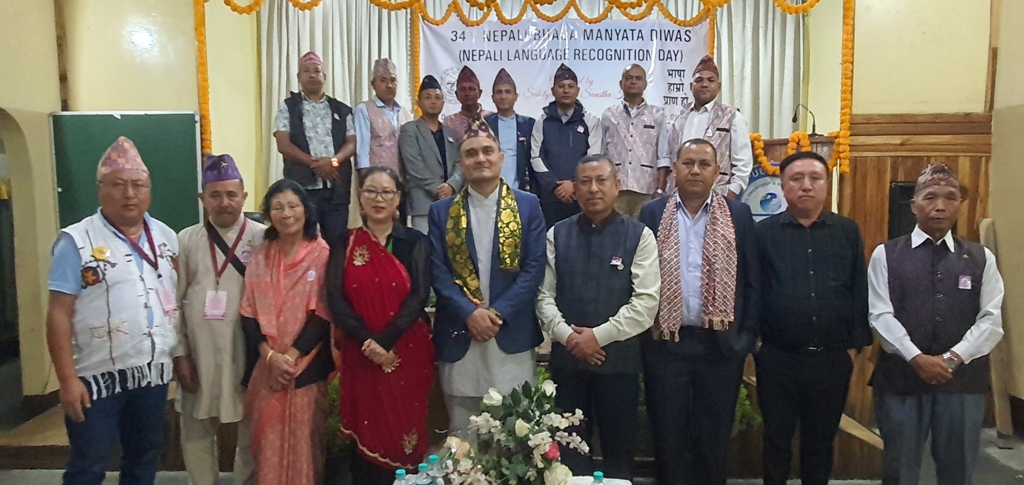The Gorkha community in Kohima celebrated the 34th Nepali Bhasa Manyata Diwas, marking the inclusion of Nepali in the Eighth Schedule of the Indian Constitution.
Published on Aug 21, 2025
By EMN
Share

DIMAPUR — The Gorkha community in Kohima observed the 34th Nepali Bhasa Manyata Diwas (Nepali Language Recognition Day) on August 20 at the Gorkha Public Panchayat Kohima (GPPK) Hall, marking the historic inclusion of Nepali in the Eighth Schedule of the Indian Constitution on August 20, 1992.
The programme was organised by the Gorkha Sahitya Kala Sanstha Kohima (GSKSK) under the aegis of the Gorkha Public Panchayat Kohima (GPPK) with Dr. Gopal Chetri, principal of Sazolie College, as the special guest.
In his address, Dr. Chetri underlined that “language is our identity” and recalled the sacrifices of leaders whose tireless efforts led to the constitutional recognition of Nepali.
He emphasised that the inclusion of the Nepali language not only safeguarded the linguistic identity of the Gorkhas but also affirmed their rightful place as integral citizens of India.
Dr. Chetri urged the community to promote Nepali among the younger generation, noting that globalisation and the influence of dominant languages often weaken the use of mother tongues.
“If we neglect our own language, we risk losing our culture, literature and history,” he cautioned.
He also stressed the importance of developing Nepali literature, supporting writers and poets, encouraging schools to strengthen Nepali-medium education, and initiating a Nepali research institute.
He further encouraged unity among communities, reminding that respect for one’s language and culture should go hand in hand with respect and love for others.
“We should be proud of our language and culture and work together to protect, preserve and promote them for future generations,” Dr. Chetri added.
Highlighting the significance of the day, GSKSK member Upashna Sharma said that the recognition of the Nepali language in 1992 came after decades of struggle and advocacy by the Gorkha community and elevated it to the same constitutional status as other national languages of India.